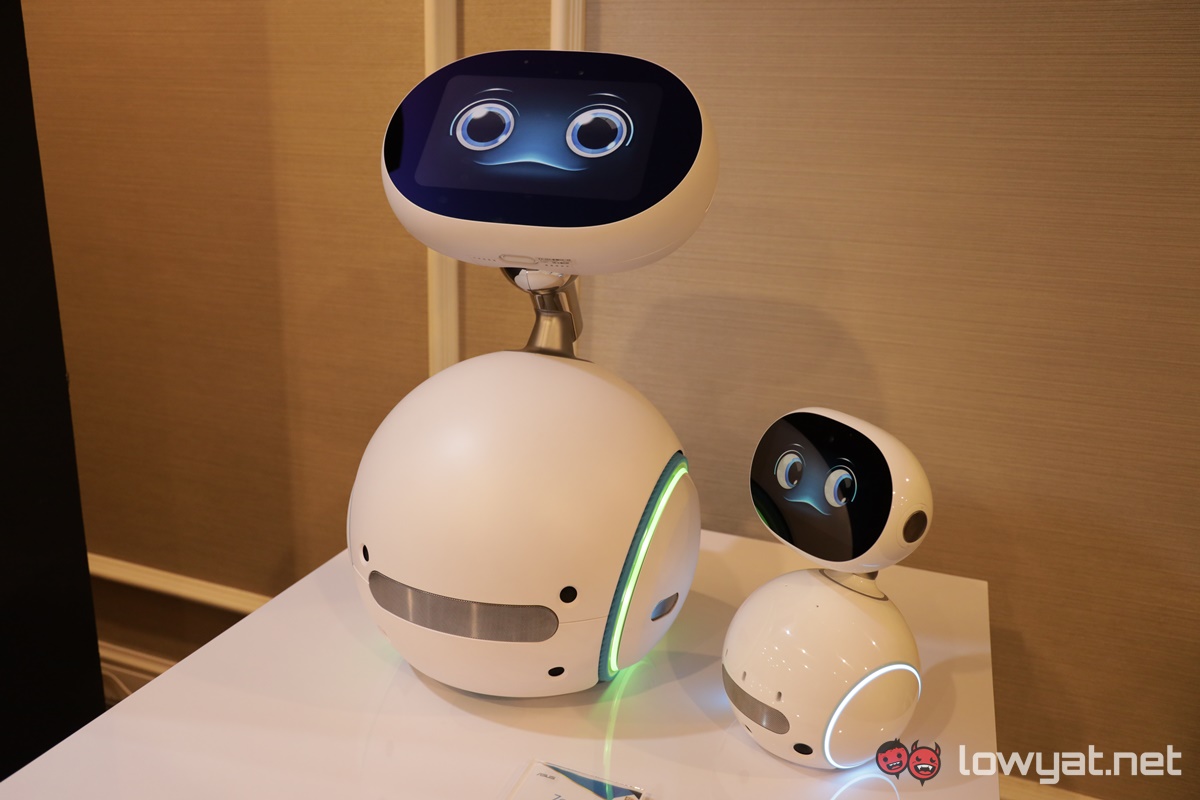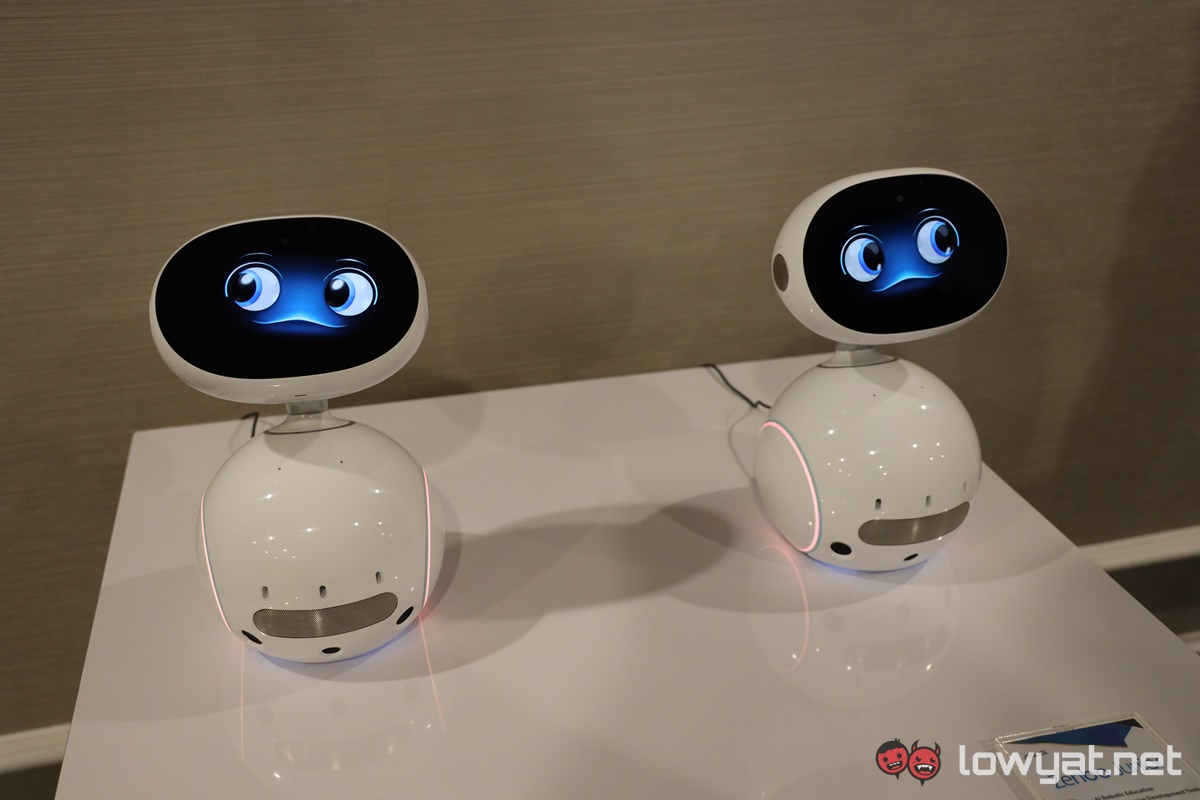By comparison, Zenbo Junior is approximately half the size of its predecessor, and weighs in at 2.75kg. Nearly a fifth of the original Zenbo’s weight. In terms of hardware, Zenbo Junior’s head has two degrees of freedom (DOF) – up and down – plus the ability to tilt its head sideway. Allowing the robot to maximise its cuteness factor. To see, Zenbo Junior has a 13MP camera built just above its 6-inch display that also acts as a platform for its animated eyes. In order to communicate with Zenbo Junior, ASUS has installed a total of four microphones into it. Additionally, the robot also has five sensors installed inside of it. this includes a Drop IR sensor, Capacitive Touch Sensor, CIR, Line Sensor, and a Sonar Sensor. Naturally, Zenbo Junior also has wireless connectivity, including being able to connect to 2.4GHz and 5GHz wavebands. The last sensor is especially important for Zenbo Junior, as it allows the AI robot to map out the area in front of him. Thus, allowing him to move around safely and minimizing its chances of crashing into an obstacle.
Charging Zenbo Junior simply requires a USB Type-A port. On a single charge, Zenbo Junior can continuously roam around between four to six hours. Charging him requires a user to physically plug his wire into him, which is odd. Because we imagine ASUS would’ve created a docking station that, through proper programming, give Zenbo Junior a small space to both dock itself and automatically charge itself when its power gets low. At the time of writing, ASUS did not say if and when if would be bringing Zenbo Junior over to Malaysia.

